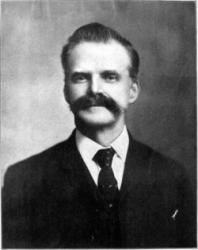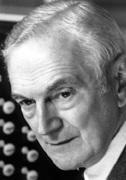Planning worship?
Check out our sister site, ZeteoSearch.org,
for 20+ additional resources related to your search.
- |
User Links
Person Results
Howard Chandler Robbins
1876 - 1952 Person Name: Howard Chandler Robbins, 1876-1952 Paraphraser of "Sunset to sunrise changes now" in The Hymnal 1982 U.S.
Howard Chandler Robbins
Clement of Alexandria

170 - 215 Person Name: Clement of Alexandria, 170?-220? Author of "Sunset to sunrise changes now" in The Hymnal 1982 Clemens, Titus Flavins (Clemens Alexandrinus), St. Clement of Alexandria, was born possibly at Athens (although on this point there is no certain information) about A.D. 170. His full name, Titus Flavins Clemens, is given by Eusebius (H. E., vi. 13) and Photius (Cod. Ill), but of his parentage there is no record. Studious, and anxious to satisfy his mind on the highest subjects, he is said to have been a Stoic and Eclectic, and a seeker after truth amongst Greek, Assyrian, Egyptian, and Jewish teachers. He himself enumerates six teachers of eminence under whom he studied the "true tradition of the blessed doctrine of the holy apostles." At Alexandria he came under the teaching of Pantsenus, and embraced Christianity, Pantsenus being at the time the master of the Catechetical School in that city. On the retirement of Pantsenus from the school for missionary work, Clement became its head, cir. 190, and retained the position to 203. His pupils were numerous, and some of them of note, including Origen, and Alexander, afterwards Bishop of Jerusalem. Driven from Alexandria by the persecution under Severus (202-203), he wandered forth, it is not known whither. The last notice wo have of him in history is in a letter of congratulation by his old pupil, Alexander, then Bp. of Cappadocia, to the Church of Antioch, on the appointment of Asclepiades to the bishopric of that city. This letter, dated 211, seems to have been conveyed to Antioch by Clement. Beyond this nothing is known, either concern¬ing his subsequent life or death, although the latter is sometimes dated A.D. 220.
The works of Clement are ten in all. Of these, the only work with which we have to do is The Tutor, in three books. The first book describes the Tutor, who is the Word Himself, the children whom He trains (Christian men and women), and his method of instruction. The second book contains general instructions as to daily life in eating, drinking, furniture, sleep, &c.; and the third, after an inquiry into the nature of true beauty, goes onto condemn extravagance in dress, &c, both in men and women. Appended to this work, in the printed editions, are two poems; the first, "A Hymn of the Saviour), and the second, an address "To the Tutor". The first, beginning is attributed to Clement in those manuscripts in which it is found; but it is supposed by some to be of an earlier date: the second is generally regarded as by a later hand .
The “Hymn of the Saviour," the earliest known Christian hymn, has been translated into English:
The earliest translation is "Shepherd of tender youth.” This is by Dr. H. M. Dexter (q. v.). It was written in 1846, first published in The Congregationalist [of which Dexter was editor], Dec. 21, 1849, and is in extensive use in the United States. In Great Britain it is also given in several collections, including the New Congregational Hymn Book, 1859; Baptist Psalms & Hymns, 1858; the R. T. Society's Collection, &c.
There are also translations not in common use, viz.: (1) "Bridle of colts untamed," by Dr. W. L. Alexander, in the Ante-Nicene Christian Library, vol. iv. p. 343; (2) "Bridle of colts untaught," by Dr. H. Bonar, in The Sunday at Home, 1878, p. 11. (3) Another translation is by the Rev. A. W. Chatfield, in his Songs and Hymns of the Earliest Greek Christian Poets, 1876. Mr. Chatfield, following the Anth. Graeca Car. Christ., 1871, p. 37, begins with the eleventh line: "O Thou, the King of Saints, all-conquering Word." His translation extends to 40 lines.
--Excerpts from John Julian, Dictionary of Hymnology (1907)
Clement of Alexandria
Monastery of Our Lady of the Rosary (Summit, N.J.)
Person Name: DNS Harmonizer of "KEDRON" in The Summit Choirbook The Monastery of Our Lady of the Rosary is a Dominican convent in Summit, New Jersey. It was founded in 1919.
Monastery of Our Lady of the Rosary (Summit, N.J.)
Jeffery W. Rowthorn

1934 - 2025 Person Name: Jeffery Rowthorn Author of "Creating God, Your Fingers Trace" in The United Methodist Hymnal
Jeffery W. Rowthorn
John W. Arthur
1922 - 1980 Author of "Spirit of God, Unleashed on Earth" in The Presbyterian Hymnal
John W. Arthur
Russell Schulz-Widmar
b. 1944 Composer (descant) of "KEDRON" in The United Methodist Hymnal Music Supplement II
Russell Schulz-Widmar
Wilson Marion Cooper

1850 - 1916 Person Name: W. M. Cooper Composer, alto of "THOU MAN OF GRIEF (KEDRON)" in The Sacred Harp Produced a major revised edition of the Sacred Harp fasola tunebook, 1902.
Wilson Marion Cooper
Alec Wyton

1921 - 2007 Person Name: Alec Wyton, 1921- Harmonizer of "KEDRON" in The Hymnal 1982
Alec Wyton is described in Grove's Dictionary of Music and Musicians, by saying, "Wyton has brought together and caused to flourish three separate traditions: English church music, American church music and music from outside the churches." Also bringing together clergy and musicians of the Episcopal Church, he was the Coordinator of the Standing Commission on Church Music from 1974 to 1985; he was Minister of Music at St. Stephen's Church, in Ridgefield, Conn., from 1987 until his appointment as Minister of Music Emeritus in 2004; and he was Founder and Chairman of the Church Music Department of the Manhattan School of Music. Wyton is the award-winning ASCAP composer of over 100 published works; editor of the Anglican Chant Psalter; contributor of articles to professional journals; performer, teacher and lecturer: he is the complete musician. From 1954 to 1974 he was Organist and Master of the Choristers at the Cathedral of St. John the Divine and Headmaster of the Cathedral Choir School. He taught at Union Theological Seminary in NYC and was Chairman of the Organ Department at Westminster Choir College, Princeton.
Wyton was born in London in 1921. He earned degrees from the Royal Academy of Music and Oxford University. He came to the United States in 1950, working briefly in Dallas and St. Louis. Wyton died on March 18, 2007, after a prolonged illness.
He has traveled throughout the US and Canada playing recitals, conducting workshops, master classes and hymn festivals stressing the coexistence in liturgy of great music and literature of the past with new and exciting works by artists of our time.
--www.selahpub.com
Alec Wyton


 My Starred Hymns
My Starred Hymns

